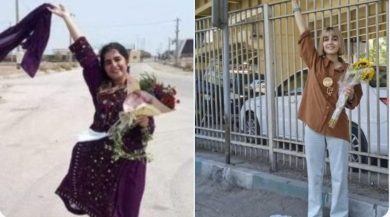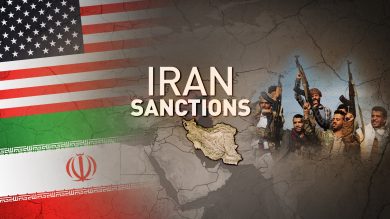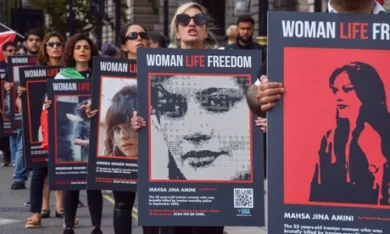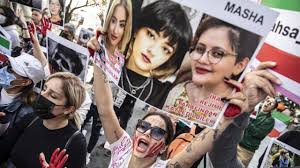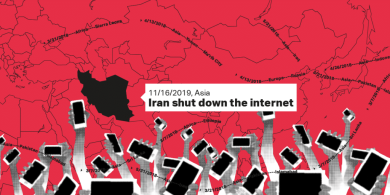From Toronto to Berlin, Sydney to Stockholm, the Iranian diaspora is rising — not in exile, but in resistance.
They are artists, lawyers, journalists, students, mothers, and survivors. They carry scars from prisons like Evin, memories of loved ones executed, and a deep, unshakable belief that Iran deserves better. These are the diaspora’s diaries — stories not of escape, but of action.
As the Islamic Revolutionary Guard Corps (IRGC) tightens its grip on Iran’s streets, its reach into global communities also expands. And yet, in cities across the world, ordinary Iranians are confronting the regime’s power with extraordinary courage.
This is a story of how the diaspora is rewriting the narrative — from one of silence and exile to one of visibility, resistance, and transnational solidarity.
1. Exile Was Supposed to Be the End — Instead, It Became the Beginning
Many Iranians who fled the Islamic Republic in the 1980s and 1990s believed they had escaped the regime’s reach. They started over. Built lives. Raised families. Grieved in silence.
But something changed in 2009, when the Green Movement erupted. And again in 2017. And again, more powerfully, in 2022 after the murder of Mahsa (Jina) Amini.
For many in the diaspora, these uprisings weren’t just national moments — they were personal awakenings.
What they once watched from afar became a call to action.
Suddenly, exile wasn’t about distance. It was about amplification.
2. Protests Abroad: More Than Symbolism
Mass protests outside Iranian embassies, UN buildings, and city centers became global flashpoints. But they were never just symbolic.
Why these demonstrations matter:
• They attract international media when Iranian journalists are censored.
• They pressure local governments to adopt sanctions or investigate IRGC-linked individuals.
• They connect Iranians across regions, building new activist networks.
• They speak to those inside Iran, sending a message: You are not alone.
In Berlin, 80,000 gathered in a historic 2022 march. In Washington, survivors of political imprisonment delivered fiery speeches. In London, protestors set up mock prisons. Every city became a frontline.
3. From Mourning to Mobilizing: Women Leading the Diaspora Fight
Many of the most powerful voices in the diaspora are women — and many are grieving.
Mothers like Masoumeh Karami, whose son Mohammad Mehdi was executed. Sisters and daughters who hold photos at protests. Survivors of state violence who now run support networks for others.
These women are not just victims. They are strategists, organizers, and human rights defenders.
Some launch petitions to pressure governments for IRGC designation. Others speak on panels, teach digital security to activists, or gather testimony for legal cases. They have turned mourning into a movement.
4. Digital Resistance: When Hashtags Become Weapons
In the diaspora, the internet isn’t just a tool — it’s a battleground.
Through platforms like X (formerly Twitter), Instagram, and Telegram, diaspora Iranians:
• Break state narratives with viral videos from inside Iran.
• Launch digital campaigns like #BanIRGC and #JusticeForIran.
• Coordinate cross-country protests and global events.
• Monitor regime propaganda and expose trolls.
Digital campaigns are now part of the IRGC’s fear. That’s why they run cyber units to target diaspora journalists and hack accounts.
But every time the regime tries to silence a voice online, another rises. Resistance is contagious.
5. Journalism in Exile: Telling the Stories They Can’t Kill
Many Iranian journalists, forced to flee for safety, now run media in exile — from independent newsrooms in Europe to podcasts and YouTube channels.
These platforms are critical for:
• Documenting executions and prison conditions
• Investigating IRGC corruption
• Giving voice to activists inside Iran
• Countering state propaganda
Outlets like IranWire, Radio Zamaneh, and BBC Persian serve as lifelines. They are banned in Iran — which is all the more reason they’re essential.
6. Art and Culture as Acts of Rebellion
In the Iranian diaspora, art has become a weapon of memory and a tool of resistance.
Artists are creating:
• Exhibitions honoring murdered protesters
• Films on political prisoners
• Murals in major cities
• Music and poetry shared at rallies
From protest songs to installations of empty hijabs, diaspora creatives are ensuring that grief becomes public and powerfully political.
7. Legal Warriors: Turning Protest into Prosecution
Some members of the diaspora are not just activists — they are lawyers and legal strategists.
Their work includes:
• Filing universal jurisdiction cases in Germany, Sweden, and beyond
• Pushing for IRGC terrorist designation in parliaments
• Gathering evidence from survivors for future trials
• Challenging dual nationals’ detention through human rights courts
For example, the Hamid Nouri trial in Sweden — resulting in the first conviction for 1988 prison massacres — was made possible by exiled survivors and legal experts.
The diaspora is turning anger into legal accountability.
8. Under Watch: The IRGC Still Follows
Exile does not mean safety.
The IRGC targets diaspora Iranians through:
• Cyberattacks and phishing
• Surveillance at events
• Threats to family members in Iran
• Smear campaigns and character assassination
• Plotting assassinations or kidnappings abroad (e.g. against journalist Masih Alinejad)
Despite this, the diaspora continues to speak out. Fear may linger, but fear no longer silences.
9. Intergenerational Activism: Youth Take the Lead
Today’s diaspora resistance isn’t led only by the generation that fled after 1979 — it’s led by their children.
Second-generation Iranians are:
• Organizing student protests on university campuses
• Running online campaigns and translating news
• Starting podcasts, clubs, and media collectives
• Using their legal, journalistic, or academic skills to fight injustice
They may not have grown up in Iran — but Iran lives in them.
10. Solidarity with Other Movements
The Iranian diaspora is building alliances across struggles. From Ukraine to Palestine, from Kurdish rights to LGBTQ+ movements, there’s a growing awareness that freedom is universal, and so is repression.
By linking arms with others, diaspora Iranians are expanding their power, and breaking the regime’s narrative that “it’s only about Iran.”
11. The Power of Naming Names
Diaspora researchers and whistleblowers are exposing IRGC front companies, regime-affiliated clerics abroad, and sanctioned individuals hiding assets.
These investigations have:
• Frozen IRGC-linked funds in Canada and the UK
• Exposed corruption in charity foundations
• Sparked media coverage of dirty money and property holdings
Naming names is powerful — and it’s happening because diaspora citizens refuse to forget.
12. What the Diaspora Needs from the World
To keep going, the diaspora needs allies.
Governments should:
• Grant legal protection to activists and asylum to those at risk
• Investigate IRGC-linked businesses and prosecute their crimes
• Sanction officials who target dual nationals or exiled journalists
• Support technology that enables secure communication
NGOs should:
• Provide mental health support for exiled survivors
• Fund grassroots organizing, especially among youth and women
• Translate diaspora content into global languages
Diaspora resistance is not a footnote. It’s a frontline. It deserves support.
Conclusion: Exile Is Not an End — It’s a Launchpad
The Iranian diaspora once left in grief. Today, it rises in power.
Through their voices, stories, investigations, art, and advocacy, they are doing what the regime fears most: telling the truth, loudly and globally.
Join Our Newsletter!
Stay informed with the latest updates, news, and ways to take action in the fight for justice and global security. Sign up now to get updates delivered straight to your inbox!

